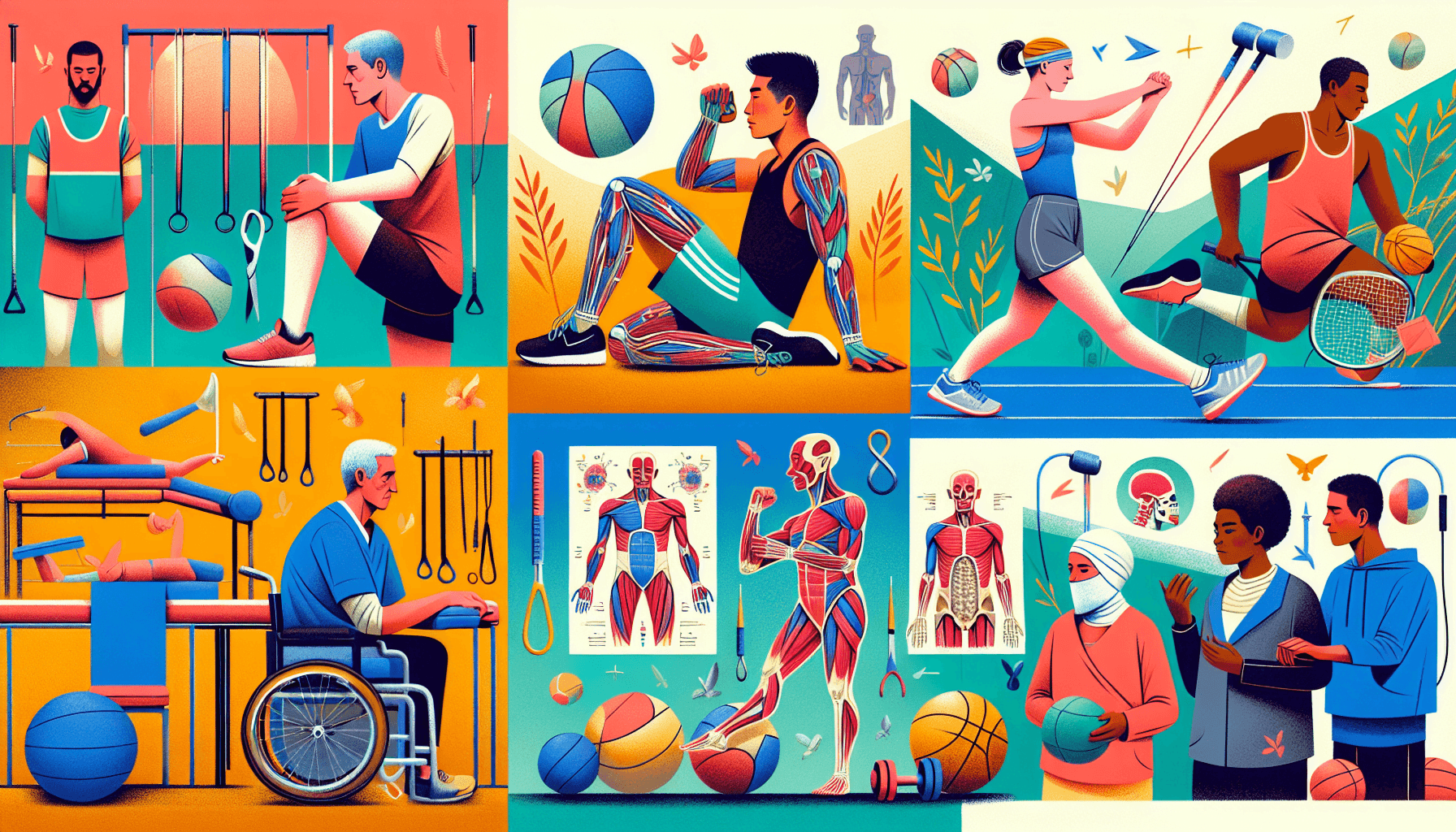Sports medicine is a specialized branch of medicine that focuses on providing medical care and treatment for athletes and individuals engaged in physical activities. Its goal is to enhance recovery time and optimize performance. Whether you are a professional athlete or someone who enjoys being physically active, utilizing sports medicine techniques can help you recover faster from injuries and prevent future ones.
Importance of Sports Medicine in Recovery
When it comes to recovering from sports-related injuries, time is of the essence. Sports medicine plays a crucial role in expediting the recovery process and ensuring that athletes can return to their sport as quickly as possible. Here are some ways in which sports medicine can enhance recovery time:
- Proper Diagnosis: Sports medicine professionals are highly trained in diagnosing and treating sports-related injuries. They have a deep understanding of how different movements and activities can impact the body. By accurately diagnosing the injury, they can provide targeted treatment plans that promote faster healing.
- Individualized Treatment: Every athlete is unique, and so are their injuries. Sports medicine professionals take into consideration the specific needs of each individual and create customized treatment plans. Whether it’s physical therapy, acupuncture, or medication, the treatment is tailored to the athlete’s needs, maximizing the chances of a speedy recovery.
- Rehabilitation Programs: A proper rehabilitation program is crucial for recovering from sports injuries. Sports medicine professionals can develop comprehensive rehabilitation plans that focus on strengthening the injured area, improving flexibility, and restoring function. These programs help athletes regain their pre-injury level of performance and reduce the risk of re-injury.
By utilizing these specialized treatments and techniques offered by sports medicine professionals, athletes can recover quicker and get back in the game stronger than ever.
The Role of Sports Medicine in Injury Prevention
Prevention is always better than cure, and this holds true for sports-related injuries as well. Sports medicine not only helps in the recovery process but also focuses on preventing injuries from occurring in the first place. Here’s how sports medicine plays a vital role in injury prevention:
- Pre-Participation Physical Examinations: Before engaging in any sports activity, athletes undergo pre-participation examinations conducted by sports medicine professionals. These evaluations assess an individual’s overall health, identify potential risk factors, and determine their readiness for physical activity.
- Proper Warm-up and Conditioning: Sports medicine professionals educate athletes on the importance of warming up and conditioning exercises. These activities prepare the body for physical exertion, increase flexibility, and reduce the risk of muscle strains and tears.
- Technique Evaluation and Correction: Improper technique can lead to avoidable injuries. Sports medicine professionals analyze an athlete’s form, identify areas of improvement, and provide guidance on correct technique. This helps athletes perform movements more safely and efficiently.
- Education on Injury Prevention Strategies: Sports medicine professionals educate athletes on injury prevention strategies specific to their sport. This may include information on protective equipment, proper nutrition, hydration, and rest. Athletes who are well-informed are better equipped to prevent injuries.
By being proactive in injury prevention through the guidance of sports medicine professionals, athletes can avoid unnecessary setbacks and continue performing at their best.
How to Incorporate Sports Medicine into Your Routine
Now that you understand the importance of sports medicine in recovery and injury prevention, it’s time to consider how you can incorporate it into your routine. Here are some practical steps you can take:
- Consult with a Sports Medicine Professional: Start by consulting with a sports medicine professional who can assess your current physical condition and provide personalized recommendations.
- Follow a Comprehensive Training Program: Work with a sports medicine professional to develop a training program that includes exercises to enhance strength and flexibility, as well as strategies to prevent injuries.
- Take Rest and Recovery Seriously: Allow your body ample time to recover after intense physical activity. Rest and proper recovery techniques, such as icing and compression, can aid in the healing process and prevent overuse injuries.
- Stay Consistent with Physical Therapy: If you are recovering from a sports injury, diligently follow your physical therapy program as prescribed by your sports medicine professional. Consistency is key to a successful recovery.
Remember, sports medicine is not just for professional athletes. It can benefit individuals of all fitness levels who engage in physical activities. Incorporating sports medicine into your routine can help you stay injury-free, enhance your performance, and optimize your overall well-being.
To find out how sports medicine can help you on your journey to optimal health and performance, visit Eastside Ideal Health today.

